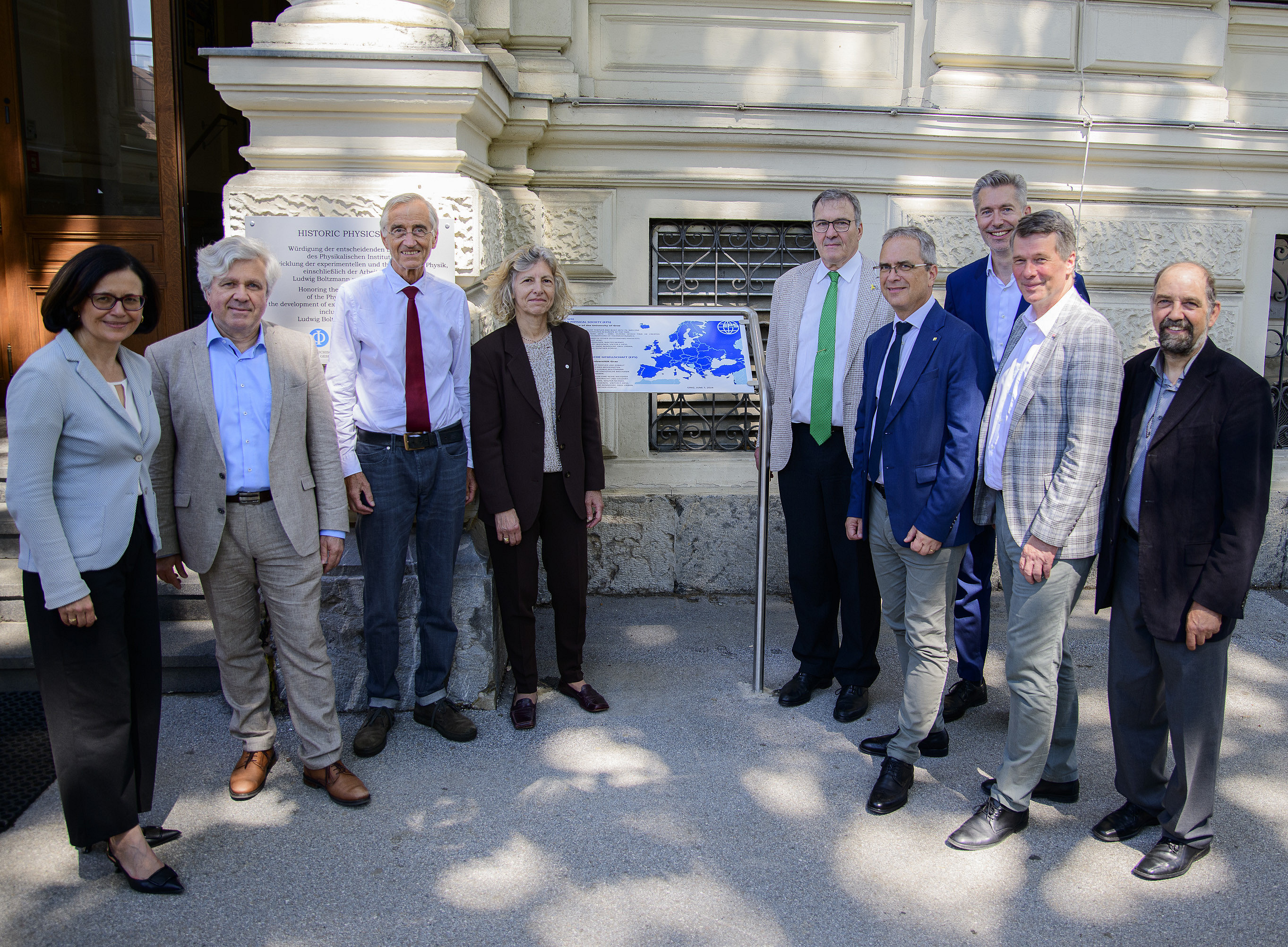The European Physical Society (EPS) regularly recognizes physics research sites where outstanding personalities have worked. There are a total of 74 of these "Historic Sites" worldwide. These include famous names such as "The Institute for Advanced Study in Princeton" (USA), "CERN" and "Einstein House" in Switzerland, the "Institute for Radium Research" and the "Atominstitut" in Vienna, and the "Victor-Franz-Hess-Messstation Hafelekar" in Innsbruck. Now a building on the University of Graz campus can also bear this special name: the physics building at Universitätsplatz 5 - built 150 years ago in the short space of 4 years - has become the fourth "Historic Site" in Austria to join the ranks. And so, on June 7, 2024, to mark the 180th anniversary of the birth of the famous scientist Ludwig Boltzmann - who worked as a researcher at the University of Graz from 1869 to 1873 and from 1876 to 1890 - a commemorative plaque was ceremoniously unveiled on the facade of the building.
"I am particularly pleased that the physics building at Universitätsplatz 5 can officially bear the designation 'Historic Site'. Scientific research has a long tradition at our university. This is not only visible in the names of important researchers such as Ludwig Boltzmann, but is also reflected spatially on campus. Right next to the listed physics building, the state-of-the-art Graz Center of Physics is currently being built until 2030, which will further strengthen physics research in Graz with a modern infrastructure," emphasizes Peter Riedler, Rector of the University of Graz.
The nomination for this award is based on an initiative of the First European Center for the History of Physics ECHOPHYSICS. In addition to the unveiling, an international symposium on the historical development of the institute building and its leading figure Ludwig Boltzmann took place on June 7, 2024.
Further information:
Historical memorials - European Physical Society: https://www.eps.org/page/distinction_sites
A journey through the history of the University of Graz:
https://1585-tomorrow.uni-graz.at/de/#/
